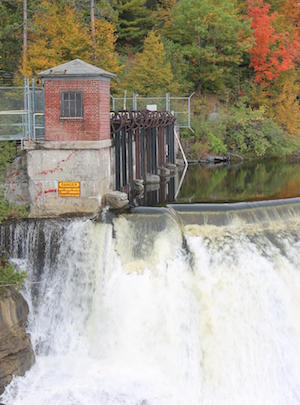South Dakota dams continue dumping water into the Missouri River, flooding several Iowa counties. | wkwright14@gmail.com
South Dakota dams continue dumping water into the Missouri River, flooding several Iowa counties. | wkwright14@gmail.com
As clean up and rebuilding resume, one thing is certain in the southwest communities along the Missouri River: The U.S. Army Corps of Engineers isn't in good stead here.
"The Corps of Engineers is not anyone’s friend," District 11 Sen. Tom Shipley said. "The federal court said they have screwed up and let the environmental groups run the area. [It] is effectively managing for endangered species and secondarily for humans."
Shipley, vice chairman of the legislature's Natural Resources Committee, echoes colleagues at the Capitol and sentiment on the ground, as Mills, Pottawattamie and Fremont counties continue waiting for floodwaters to recede. The region endured historic flooding in March, May and September.
"This thing just doesn’t seem to end. The water has moved into northwest Missouri, and parts of Kansas are inundated," Shipley said. "We're dependent on levees that had been repaired by the time of the third incident. Some repairs are falling to private, rural levee districts. They're not getting any help from Army Corp."
Shipley said record amounts of water continues pouring into the Missouri River from dams in South Dakota.
"Not only is it not going down, it's staying up. In September, there was a big storm event in South Dakota. The river is already full," Shipley said. "There was some Mississippi River flooding, also."
Displaced homeowners have moved northward and to the east seeking relief. The Federal Emergency Management Agency has offered disaster funds, and affected counties are considering land buyouts, Shipley said. Fremont, Mills and Pottawattamie have begun the initial buyout phase by printing and processing applications.
"The legislature has appropriated some money from our reserves. Until it's gone, we don’t know what we need to fix," Shipley said of the $15 million allocation. "Some water has been there since March 17. It can’t go anywhere. Evaporation is taking care of some of it, but it can’t go anyplace. We don’t know what’s out there."
The water's normal east-west current has deviated to running the other way now, Shipley said.
"We've received private money and a massive amount of donations and help" for displaced homeowners, the Adams County lawmaker said. "We come through for each other, just like we Iowans always do."





 Alerts Sign-up
Alerts Sign-up